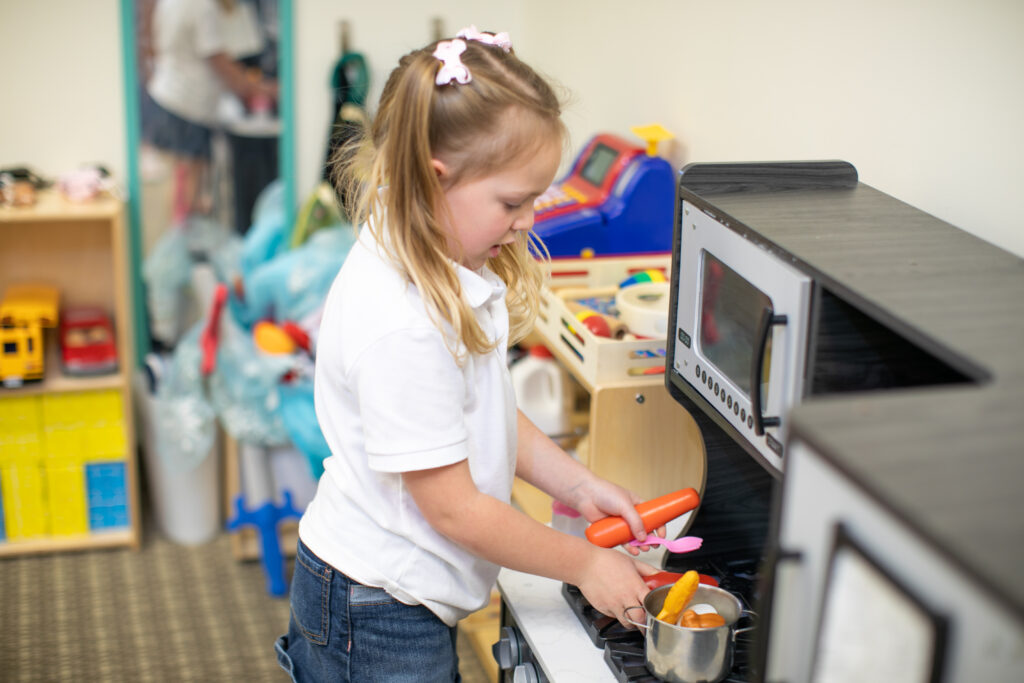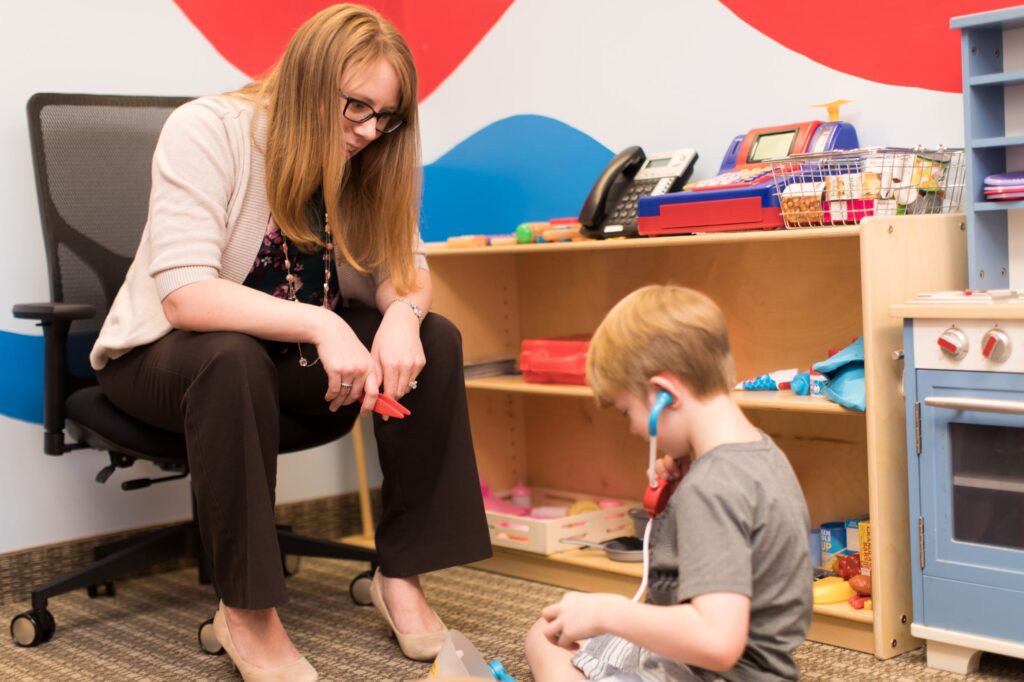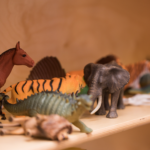Our Approach To Play Therapy
Effective therapeutic change occurs when an individual can identify what is causing their problems, learn how to go about changing their behavior or environment, and use new skills or insight to bring about lasting change. All this requires abstract thought and the capacity for advanced reasoning skills which children under the of 10 do not yet possess, and those ages 11 to 17 only partially realize.
Young children are concrete thinkers which mean they learn best by having direct contact with people, places or things. Consequently, traditional talk therapy requires abstract thought, an expansive and diverse vocabulary along with advanced reasoning skills all of which are foreign or cumbersome for children or adolescents.
Children across the globe learn, explore and understand their world through play so it only makes sense that therapists can use the developmentally appropriate use of play to help children understand, express, and cope with life’s most difficult problems.
We use fun, interactive and concrete play opportunities to ensure our therapists will observe the concerning symptoms or behaviors in question and work with your child to build new skills, express needs more clearly or understand life’s difficult tragedies.
To learn more about Play Therapy please visit:


Frequently asked questions
The same could probably be said about talking to a therapist, how is that different than talking to a friend. Play is a developmentally appropriate way for children to communicate a wide array of feelings, thoughts and emotions that they don’t quite have all the words of cognitive abilities to express. Our trained play therapists tap into the power of play as a means of engaging children in the therapeutic process.
Play is a spontaneous and in-the-moment experience that does not need to be explained, rather it can be presented. Play therapy provides an environment for your child to express or share all of their emotional or behavioral issues with our therapists in real-time. Therefore you are not left describing your child’s problems to the therapist in hopes they understand, or even believe you, but rather they get to experience them first hand.
Your child’s therapy will be conducted in a room that is specifically designed for therapy in mind. Our toys are selected for their non descriptive purpose that allows the child the freedom to use toys in any way necessary to communicate their experiences. The Therapist will help your child put words their emotions and experiences, better articulate their needs and thought process, along with assisting your child in using their strengths to cultivate coping strategies to deal with big emotions or difficult situations.
Child-Centered Play Therapy is best conducted with just the therapist and the child. Like adults, we find children need a space to express their thoughts, feelings and behaviors without their parent’s influence. We find that parents request to observe their child’s play sessions for a variety of reasons, so please be sure to share your concerns or inquiries with your child’s therapist to see if we can find a way to meet your needs.
We find the majority of our play therapy clients are doing better in about 12-16 sessions (3-4 months) and graduate from therapy by the 20th session. It is important to note, like most new and novel things, the first month of your child’s therapy is getting them used to the process, developing a reference for the concept of therapy, and bonding with their therapist. During months 2-4 your child will engage in the working-phase of therapy. It is not at all uncommon for children’s presenting issues to peak or worsen shortly before a rapid improvement. We want children to benefit from a full course of therapy and encourage families to plan on treatment lasting up to 6 months.
Play therapy has been well-researched over the past few decades. We encourage parents to do their own research as it relates to their child’s needs. However, you can access the following articles to begin your search: https://cpt.unt.edu/researchpublications/meta-analyses
Our Trained Play Therapists
Our play therapists have received specialized training, supervised experience and either certified or working through the rigorous certification process.










